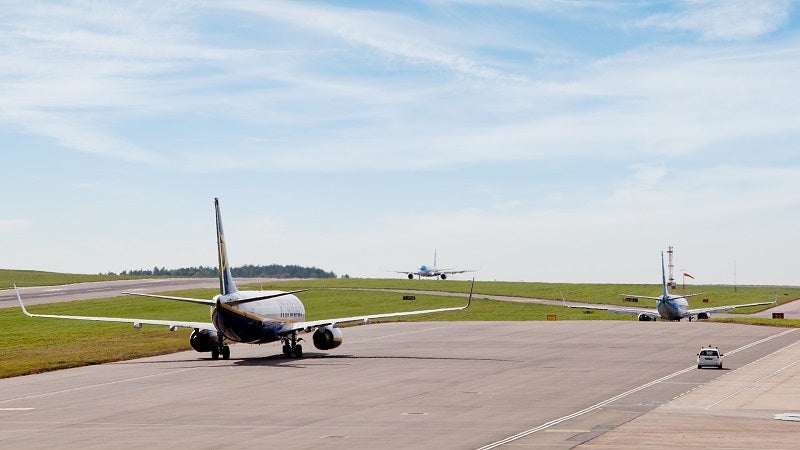
The UK’s Bristol Airport (BRS) has set a target to become carbon neutral by the end of this year, four years ahead of schedule.
It reduced the time scale from 2025 to 2021.
The announcement was made at the Future of Flight, Business Breakfast event, which was attended by business, aviation and aerospace industry leaders across the region.
The event was organised by Bristol Airport with an objective to showcase the region’s role in supporting clean aviation growth and offer proposals on how the aviation sector can decarbonise.
The airport also announced that it would become the UK’s first net-zero airport by 2030, which is 20 years ahead of the government’s target date.
Bristol Airport CEO Dave Lees said: “Today is another milestone in looking towards the future showcasing how businesses in the region collaborating together using the latest technology and innovative solutions will meet decarbonisation targets.
“The aviation industry is taking its responsibilities seriously in addressing climate change challenges, working together to create the solutions now and in the future.”
To support its initiative, the airport committed to becoming a net-zero airfield, with net-zero buildings and operate a net-zero fleet of vehicles.
A consortium led by British engineering and designing company Atkins, in which Bristol Airport is a participant, is examining the feasibility of air taxi services in the South West with electric vertical take-off and landing (eVTOL) aircraft.
The aim is to revolutionise transportation in a sustainable manner.
Atkins Advanced Air Mobility lead James Richmond said: “De-carbonising aviation is an enormous challenge that requires multi-disciplinary global action from across the entire ecosystem, working together towards common goals and with robust policies in place.
“Embracing technological innovation will be key and as the industry develops solutions, working early with ambitious partners to test and validate these will be fundamental to their implementation and success.”
Bristol Airport anticipates further partnerships and proposals in the coming months as the region turns towards recovery from the Covid-19 pandemic and in the lead up to COP26 later in 2021.



